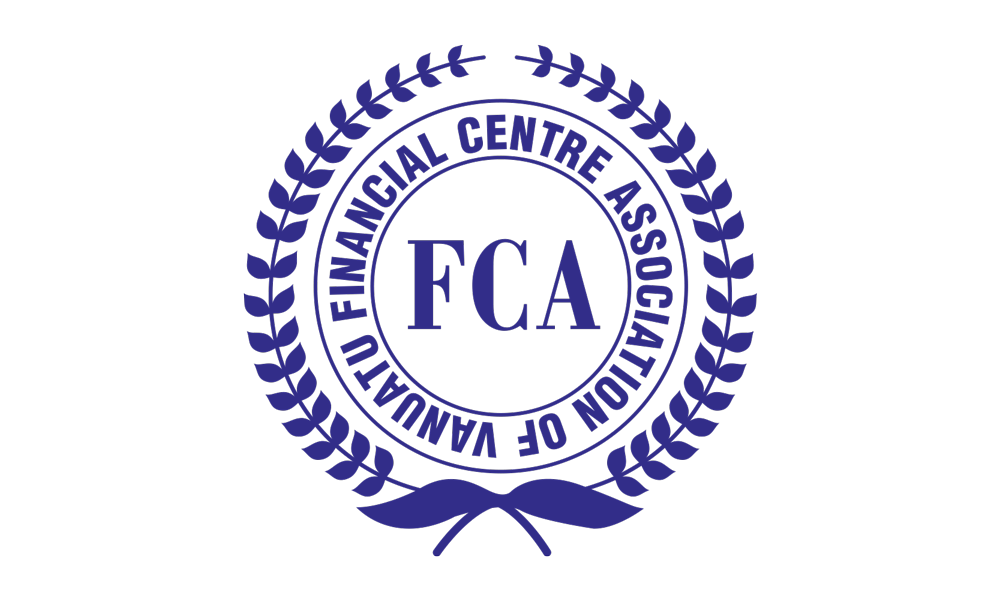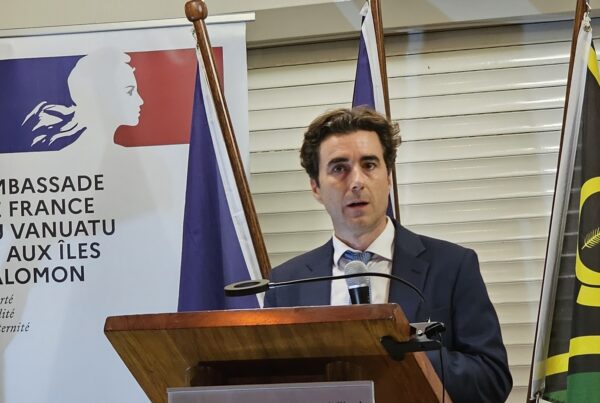The French Embassy in Vanuatu recently circulated an explanatory note on the blacklisting of our country by the European Union. I am thrilled by this as it serves to move the debate forward, and for that I’d like to thank the Ambassador and his team.
As the Chairman of the Financial Centre Association of Vanuatu, and in my capacity as an expert-accountant who has been working in Vanuatu for over 18 years, I have been deeply involved in the question of EU blacklists for a number of years now. That’s why I’d like to share a few comments on the embassy’s note with you.
The note aims to explain why Vanuatu appears on the two EU blacklists: the list of countries at high risk for money laundering and terrorism financing (AML-CFT), and the list of Non- cooperative States and Territories respecting tax (NCST). Let’s begin with a discussion of the embassy’s arguments on the topic of AML-CFT lists.
1) AML-CFT list of high-risk countries
The AML-CFT is the most problematic blacklist for Vanuatu, as it attributes suspicions of serious criminality to it. Since September 20, 2016, over five years ago, Vanuatu has been listed alongside Afghanistan, North Korea, Iraq, Iran, Uganda, Syria and Yemen.
The embassy’s note indicates that the EU’s AML-CFT list is “stricter” than that of the Financial Action Task Force (FATF) which is the international authority on the subject (the EU is also a member). The FATF placed Vanuatu on a watch list at the beginning of 2016 but removed it in June 2018 after inspection, and restated the country’s compliance with its demands after a number of subsequent evaluations. Yet the EU has kept Vanuatu on its list.
According to the Embassy’s note, the terrorist attacks on the Bataclan nightclub (2015) and in Nice (2016) are what drove the EU to adopt a higher standard of vigilance than the FATF. So does Vanuatu pose a risk for financing Islamist terrorism? A risk that escaped the FATF inspectors dispatched to the field, but not EU bureaucrats from their Brussels offices?
Let’s get serious. Our country is so small and insignificant that even if our financial system was completely porous to criminals and terrorists as the EU suggests by keeping us on the list, our alleged negligence would have very little impact on global security.
The embassy’s argument that really gets our attention is that of “the selling of passports”: according to the note, we have lost control of our citizenship program and we risk admitting dangerous criminals who will use the EU visa exemption to commit terrorist acts. To advance this argument requires an effort of the imagination that rivals fictional literature.
What the embassy actually reveals through this argument is that the presence of Vanuatu on the EU’s AML-CFT list has nothing to do with terrorism, but rather with its program of attributing citizenship to foreigners in exchange for an economic contribution. This kind of program is practiced by dozens of countries around the world, big and small, rich and poor, some of them EU members, and like them, Vanuatu is simply exercising its rights as a sovereign state.
The citizenship program may displease the French embassy, (who views it pejoratively as a “passport sale” as if a simple payment suffices to be eligible), but has nothing to do with money laundering or terrorism financing.
All of this gives the impression that Vanuatu’s presence on the EU’s AML-CFT list is blackmail, pure and simple. “Stop exercising your sovereign rights by granting citizenship to foreign nationals, or else…!”
2) List of Non-cooperative States and Territories for tax purposes (NCST)
In comparison, the NCST list is less damaging to our economic development as it rests on criteria that are more political than legal. It has no noticeable effect on our financial transactions, cost of compliance, or even our reputation. It simply lists the states and jurisdictions that, in the eyes of the EU, would have “abusive tax practices”. Except it doesn’t apply the same criteria to all. For a start, it exempts European countries and those allied with them.
In reading the French Embassy’s note, which explains the NCST list criteria, we get the idea that it’s a complex, detailed tool for fighting tax evasion; a highly laudable intention at first glance. But when we look at the names on the list, its credibility takes a hit.
Non-cooperative jurisdictions for tax purposes
- U.S. Virgin Islands
- Fiji
- Guam
- Palau
- Panama
- Samoa
- American Samoa
- Trinidad & Tobago
- Vanuatu
There you have it. Nine states and territories that represent the biggest taxation threat to EU member countries. After careful analysis of all jurisdictions, the EU singled out these nine as having the most harmful tax practices on the planet. Really?
The fact that the nine countries together represent less than 1% of global GDP is no accident. It is precisely their weakness that results in their blacklisting by the EU.
It is in fact easier to put pressure on these nine so they stop competing on tax than to ask the same of Switzerland, Luxembourg, the U.A.E., Netherlands, Monaco, Guernsey, Jersey, Cayman Islands, Bermuda, Hong Kong or Singapore, to name just a few of the tax havens forgotten on the list. These are the countries that are the champions of tax competition and arbitrage, and at a level that far eclipses that of Vanuatu and its unfortunate brethren. But they are not concerned by the NCST list.
To qualify for the list, you need to in fact be a small vulnerable territory, with no European support, that levies little to no tax on income. All other criteria cited in the embassy’s note, as rigorous as they may seem, crumple like a house of cards the minute we see who is on the list and who is spared.
Nevertheless, for the sake of argument, I will comment just the same on the embassy’s explanations. According to these, Vanuatu has two major weaknesses in terms of fiscal practice:
- The first is to have been designated as “partially compliant” by the OECD’s Global Forum on Transparency and Exchange of Information. It would have been necessary to obtain a “compliant” or “largely compliant” mention to avoid being blacklisted. Yet the OECD clearly wanted to give Vanuatu a passing grade, as otherwise it would have accorded it “non-compliant” status. The whole world agrees on this interpretation, with the obvious exception of the EU.
- Second is that Vanuatu maintains a registry of international companies qualified as offshore structures. In fact, it lists around 1500, a very small quantity when compared with the 500,000 listed by the British Virgin Islands (also absent from the NCST list). It’s important to note that all ultimate beneficiaries of these companies are known and their transparency is established, but as for the most part they do not carry out economic activity in Vanuatu, they are designated as offshore. The financial industry and the regulator currently collaborate on the amalgamation of laws governing international and local companies so as to group them under one law and produce a single public, transparent register of companies. This approach should satisfy the EU and resolve one of the points of contention that are said to justify Vanuatu’s presence on the NCST list.
In any case, correction of these two supposed weaknesses would probably be insufficient to see Vanuatu removed from the NCST list. In its note, the embassy expresses very clearly another condition, which would be the adoption of a new Business Licence Act that complies with EU requirements. The EU would therefore have the last word tax burden that Vanuatu should impose on residents and businesses under its jurisdiction.
The embassy even suggests helping us to create “long-term legislative and penal measures” which is to say dictate them to us? Ironically, our ticket to freedom is in our subjugation to the political and fiscal culture of the EU!
But we are not an overseas territory of France, and a French colony even less so. We have the sovereign right to establish the fiscal policy that suits us. It’s unbelievable how difficult it is for these basic facts to enter some minds and how they always have to be reminded of them. It seems like the colonial mentality dies hard.
Conclusion
Vanuatu’s laws and regulations are not perfect and there’s always room for improvement. But is our country a haven for international criminals and Islamist terrorists? Is it a threat to the revenue streams of the European states? Obviously not.
Isn’t it rather the European Union that’s undermining Vanuatu’s economic development?
Among the international institutions and third countries that maintain an AML-CFT blacklist, none other than the EU mentions Vanuatu: not the FATF, not the OECD, not the U.K., not Australia, not the U.S., not the P.R.C., etc.
Vanuatu is a young country in a vulnerable situation and it is unfair to hold back its development and tarnish its reputation in this way.
I agree with the French Embassy when it says that further dialogue is essential. And I am convinced a solution exists that will satisfy everyone. But to find it we need to make the EU’s blacklists an absolute priority in all our discussions.
Starting with the AML-CFT list. If Vanuatu’s financial system poses a real threat for financing terrorism, why don’t we fix it urgently? Letting this topic drag on is a demonstration that there is no problem to solve in the first place, making blacklisting therefore unnecessary. For this reason and for all the others mentioned above, Vanuatu should be immediately removed from the AML-CFT list. Or else, it will be held back from fully embracing its development potential – which the EU itself desires.
As for the NCST list, we have no choice but to take it seriously even if we think it has many defects, and we need to form a working group involving civil society and the private sector so as to make positive decisions in the interest and context of Vanuatu, and not necessarily modelled on European tax policies.
Once more, I salute the French Embassy’s initiative and thank the Ambassador for having opened the debate.
Now that the dialogue has begun, let’s see it through to the end.
Martin St-Hilaire





